Council mulls over city's contribution to CCUSD
The District requested between $2.5 million and $7.5 million annually over the next three years, which the city will look to supply by delaying new Capital Improvement Projects.
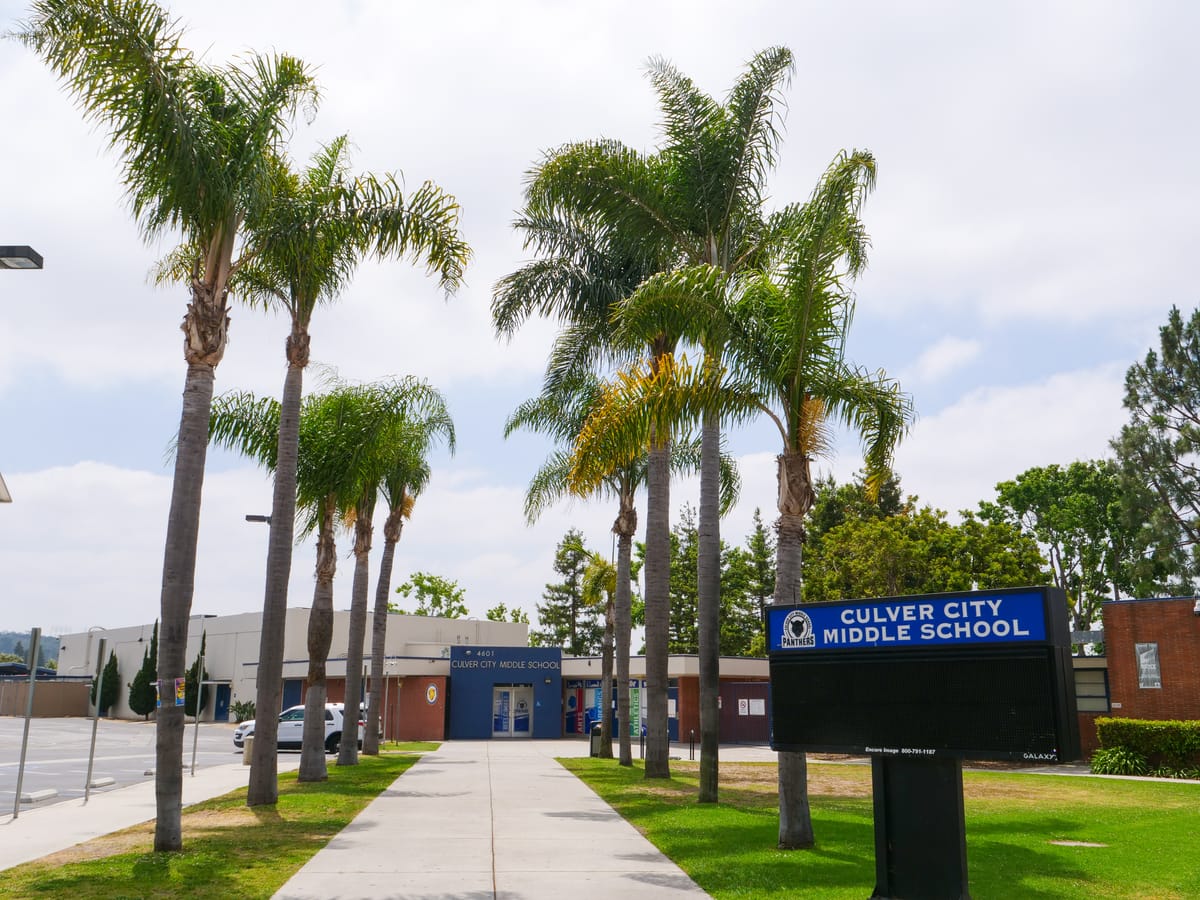
The Culver City Council will continue to consider a request for $2.5 to $7.5 million payments for the Culver City Unified School District on August 11, following initial discussions held at Monday's City Council meeting. The school district needs around $4 million this year to maintain its budget certification with the California Department of Education.
The request is for these payments to be made over three fiscal years, which would bring the overall total to anywhere between $7.5 million and $22.5 million. To cover these costs, the council directed city staff to evaluate its new Capital Improvement Project spending and present recommendations and options at the August 11 City Council meeting for $2.5 million in cuts this fiscal year to provide support to the school district.
Additionally, Councilmember Bubba Fish requested a projection of the impact the payments would have if the city decides to draw down on its General Fund Contingency Reserve to make payments instead of delaying new Capital Improvement Projects, which extend the physical lifespan of existing infrastructure or assets like property or parcels.
Assistant City Manager Jessie Mays illustrated that other local school districts receive similar funding, classified as "other local funds" at a similar percentage to Culver City.
However, several nearby school districts receive significant financial support from the municipality they serve. The Santa Monica-Malibu Unified School District receives approximately $24 million from the city of Santa Monica, according to city budget documents. Mays also mentioned the San Marino Unified School District, which receives local revenue from a $968 parcel tax and other means, but not as much direct funding from the city as in Culver City.
The length of the request is also tied to the ability to place a parcel tax on the ballot measure for Culver City voters to approve. According to Cathy Dominico from Ryland Strategic Business Consulting, the district could place a parcel tax measure on the upcoming 2026 Primary Election ballot next June, which, if approved, would begin providing funding to the Culver City Unified School District in the 2026-27 fiscal year.
However, if the district does not place a measure on the ballot before the November 2026 General Election, it would have to wait until the 2027-28 fiscal year to begin collecting revenue from a potential new parcel tax.
Culver City currently supports CCUSD to the tune of approximately $1 million for sewer and refuse fees, crossing guards, and other small costs the city covers for the district.
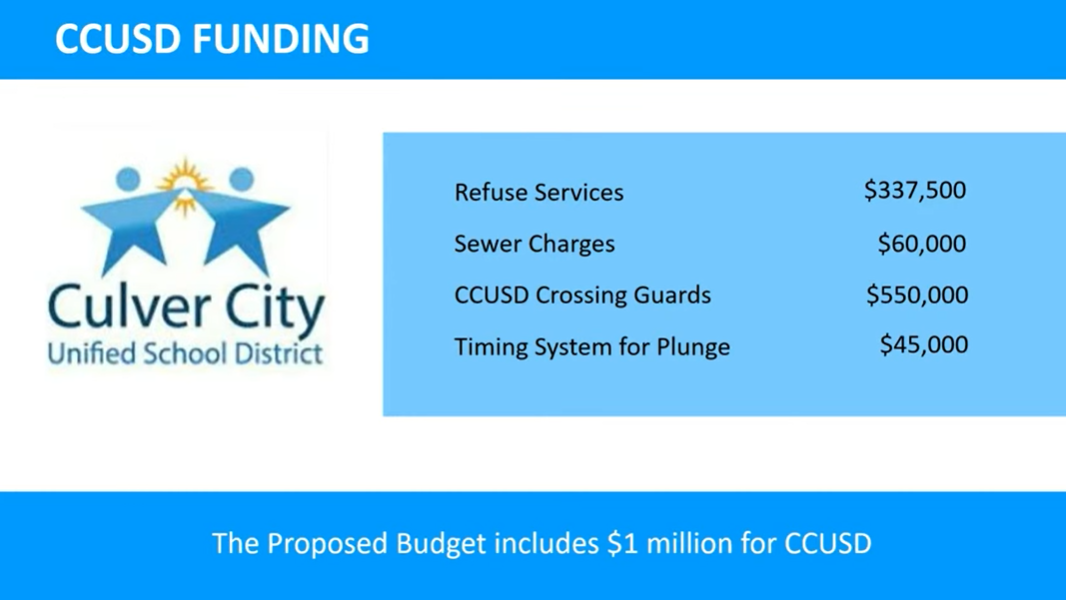
However, with the district having to lay off staff due to a burgeoning budget deficit exacerbated since May by cuts to federal funding and a reduction in revenues from the state through the Local Control Funding Formula (LCFF), district officials have argued that the support is not enough and that the city should provide more financial assistance.
They cited nearby municipalities, such as the previously mentioned Santa Monica and Beverly Hills, as examples of healthy financial support. The latter city has provided around $42.3 million from Fiscal Year 2023-24 to Fiscal Year 2025-26 in funding for facilities maintenance through its Joint Powers Agreement with the Beverly Hills Unified School District.
During his presentation on the item, Mays mentioned that if the city approves this allocation of funding, direction would also be required on which city services would need to be cut back to find the necessary funding for this commitment.
"If we add millions more in additional funding, I don't see how we avoid cuts," City Manager John Nachbar said. "This body [would have] to make a decision to reduce city services at some point."
Nachbar noted that, even in the current forecast, which includes a potential sales tax measure on the ballot next month, there are no increases to city services included. This could cause issues, as the city's population is expected to continue growing, which inherently requires an expansion of city services.
Councilmember Albert Vera expressed deep concern, as he has in the past, about the consequences of cutting city services.
But Vice Mayor Freddy Puza suggested looking towards Capital Improvement Projects as a means to find money for CCUSD. $9.3 million of the more than $125 million in Capital Improvement Project carryover spending this fiscal year is coming from unrestricted General Fund dollars, and Puza suggested examining this pool of spending as a potential area for cost-cutting without impacting city jobs.
Nachbar called such a consideration a short-term fix because the need for those improvement projects does not go away, and likened it to "stealing from the future."
Another option Puza mentioned was to build housing on district property, which would help generate revenue for the district. Workforce housing for teachers was once a topic under consideration, but the plans never materialized. Puza instead suggested a potential affordable or market-rate housing option that could help generate revenue for the district over time.
Mayor Dan O'Brien, who was allowed to participate in the discussion despite his wife being an employee of the district, said he was conflicted between his desire for the city to remain fiscally viable and the school district's need for a windfall to improve their struggling budget situation.
O'Brien noted that he is the only council member to have multiple kids go through the entire CCUSD system and has been an advocate for the district for many years. Still, he had some concerns about the commitment given some of the other funding challenges that may appear in Culver City.
He highlighted Culver City's status as a sanctuary city for undocumented immigrants and the slashing in federal funding that will come with that status as a necessary action with a heavy burden attached.
In his proposal for how to handle this item, the mayor highlighted the similarity between the high end of CCUSD's request at $22.5 million and the $20 million currently allocated to the Jubilo Village housing project, which O'Brien voted against despite supporting it in the past at a lower cost to the city, citing a need for fiscal responsibility.

He pointed out that while the money has been allocated in the budget for Jubilo Village, the contract with developer Community Corporation of Santa Monica has not been signed, giving the city the flexibility to reallocate that money from Jubilo Village to the Culver City Unified School District.
City staff pointed out that the $4 million initially proposed has already been accompanied by a commitment letter, which could cause problems when it comes to redistributing the money. Additionally, the project is funded by several restricted sources that can only be spent on affordable housing, including the Culver City Housing Authority fund.
Around $12.4 million of the $20 million is coming from the unrestricted General Fund and could be reallocated for this purpose. O'Brien argued that the impact of providing money to CCUSD and the approximately 6,200 students that support would be greater than the impact that housing 93 families at Jubilo Village would provide, and that alternatives could require the city to conduct its own austerity measures.
"You are in a situation where people will be let go," O'Brien said. "If we give money, then we'll be in that same position."
Nachbar said that his concern is that the three-year commitment will ultimately become an ongoing one. His problem, in part, stems from the fact that at Monday's meeting, there were no plans or expressed willingness during public comment to place a parcel tax on an upcoming ballot.
"That is where we have a problem," Nachbar said about the potential for the commitment to be extended indefinitely. "If it were truly one time you are lowering our reserves, but it's the ongoing [commitment that's the issue]."
The school district has yet to officially commit to placing a parcel tax measure on an upcoming ballot. Still, Councilmember Albert Vera opened the floor to allow members of the audience, which included Culver City Federation of Teachers President Ray Long and several CCSD school board members who had spoken at Monday's meeting, to confirm that a parcel tax was in the district's plans.
CCUSD Assistant Superintendent of Business Services Santha Rajiv also explained the plans for austerity measures and revenue-raising initiatives within the district to improve its financial situation without direct city support. These include increasing facilities fees, improving parking revenues, moving contracted services in-house, and applying for grants and other funding opportunities.
"It is an ongoing process, Rajiv said. We just need to meet our 3% reserve requirement. I am confident that with your one-time support, we will definitely be there."
"Right now, we just need your help."
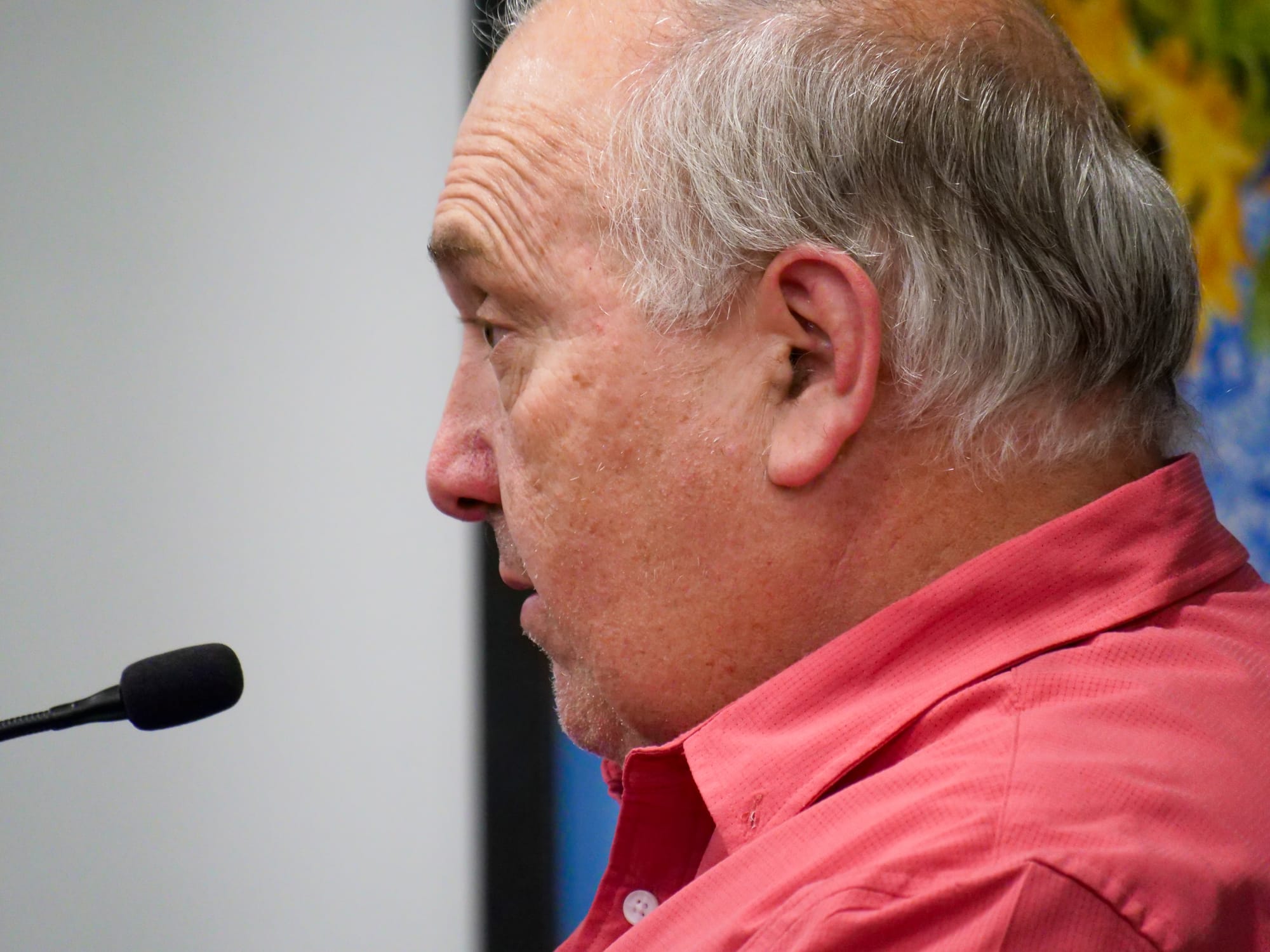
Puza inquired about the tangible impacts that the lowest ask of $2.5 million would have on the district. Rajiv stated that due to the deterioration of the budget, its reserves have dropped to less than 1% following changes to the state's budget. Consequently, the allocation of funds to the school district has been affected.
Even with that minimum request fulfilled, CCUSD will still need to find $1.5 million to achieve a positive designation from the state.
CCUSD received a Qualified Certification for its latest budget update, indicating the state believes the district "may not meet its financial obligations for fiscal year 2024–25, 2025–26, or 2026–27." A Negative Certification could have drastic consequences, potentially stripping the city of its local control over CCUSD and transferring financial responsibilities to state officials.
Vera was in a similar boat to Mayor O'Brien, believing that the best way to supplement CCUSD's budget while maintaining city service levels was to use the money committed to Jubilo Village.
"Being fiscally responsible is a major portion of my job and my duties as council member," Vera said Monday. "If I deviate from that, then I'm not holding up my end of the deal."
Vera also pointed out that he received no support when he proposed canceling the $16 million Jubilo Village commitment and reallocating $2 million to the school district.
"To me," Vera said, "this is the only way to do it without jeopardizing the financial stability any further than this council already did."
Councilmember Fish pushed back against O'Brien's perceived ultimatum, expressing that he believes choosing between the health of the school district and the development of Jubilo Village is "a false choice."
Fish pointed out the carryover funding for other Capital Improvement Projects brought up by Puza as additional options beyond the Jubilo Village project as options to reallocate funding.
"We have a $200 million General Fund budget," Fish said, "and we have millions of expenditures on capital projects beyond just this one that is being targeted."
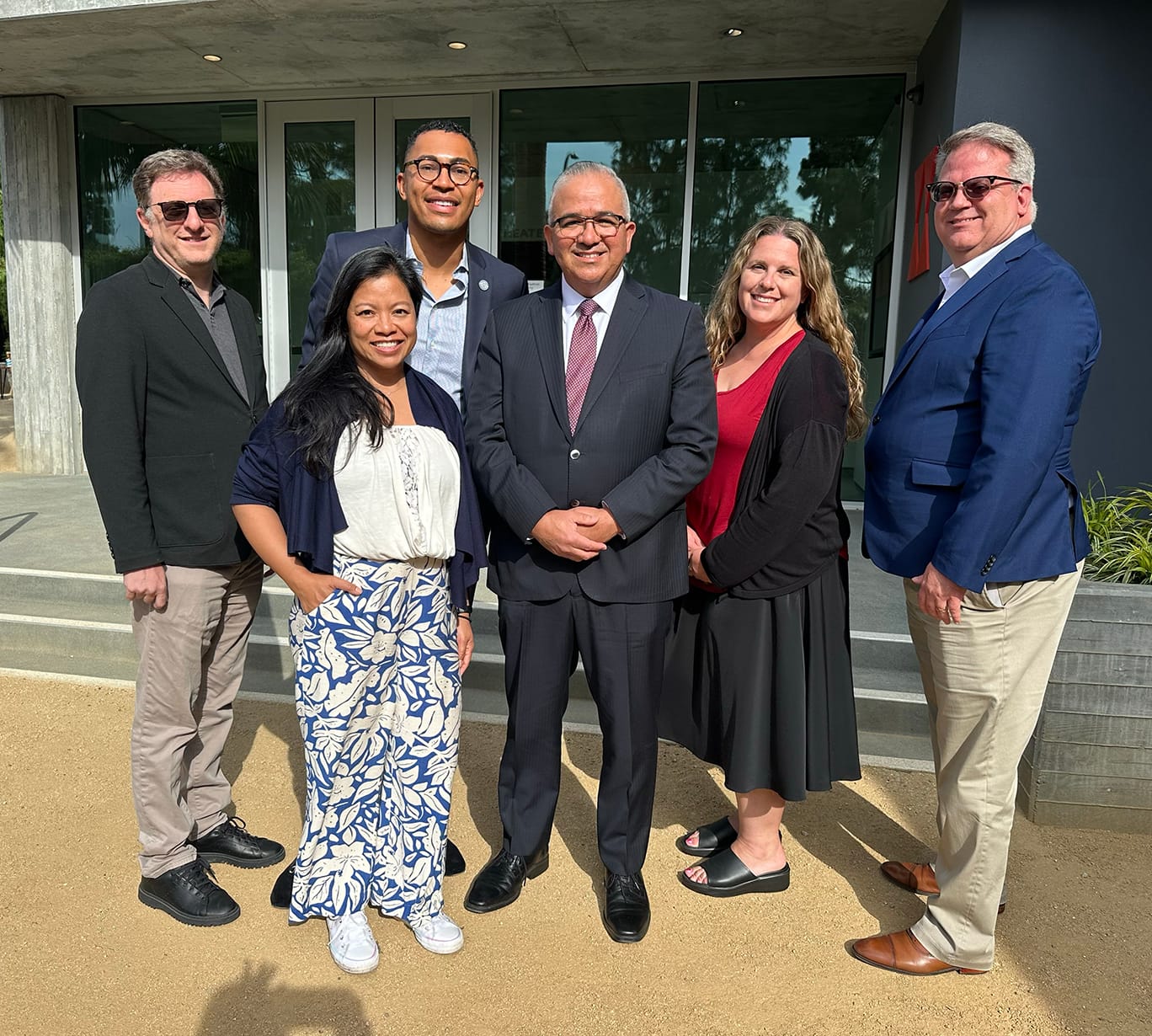
Of the new projects proposed for the 2025-2026 fiscal year budget, approximately $5.1 million in funding is allocated from the General Fund, which is the portion available for the city council to repurpose. Much of the $10.8 million being used for new projects comes from restricted funds that can only be spent on Capital Improvement Projects.
Fish also pointed out that some of the low-income families staying in Jubilo Village will include students attending CCUSD schools, potentially increasing the Average Daily Attendance used by the state to determine funding allocations each year.
"I don't think the desire to put this all on Jubilo Village makes a lot of sense," Fish said. "If we had the wherewithal to look into our city budget and try to find how we can make this work...there are other ways that we can make this work without sacrificing our second (100%) affordable housing project in 30 years."
He also emphasized the importance of making this a one-time commitment while working with the school district to explore potential alternative solutions, as he has consistently done since the budget process began. Fish stressed the importance of evaluating spending and identifying possible areas for cost savings in situations like this.
"We currently don't have a great way to reevaluate our budget and shift resources when needed, like in this exact moment," he remarked.
Puza also disagreed with the notion presented by O'Brien and Vera that the only viable solution was to abandon the Jubilo Village project, arguing that the suggestion was made as a means of exerting political will, rather than because there was a strong belief that there were no other options.
"I think it is political, and I am fine with that," Puza said of the suggestion, "but I just want to name it."
He professed his belief that this was not a "all or nothing" decision that night and that the city could work to find an amicable solution for all. He proposed revisiting Capital Improvement Projects that could be delayed to provide funding for a potential $2.5 million allocation this fiscal year.
"I think we can fund and champion our schools with what we can this year," Puza said.
O'Brien pointed out that many of the improvement projects with carryovers are necessary, as they involve repairs and improvements to existing city infrastructure. He argued that this places them at a higher priority level than Jubilo Village, which is a new project.
However, he did say that he would support directing city staff to evaluate capital improvement projects to determine where funding might be available.
"I am not going to cut any of our staff," O'Brien said. "It's robbing Peter to pay Paul."
The scope of the search was narrowed to focus on projects introduced in this year's budget to alleviate the burden on city staff.
The motion passed 4-0, with councilmember Yasmine-Imani McMorrin, who participated as a member of the public, not on the dais Monday night.


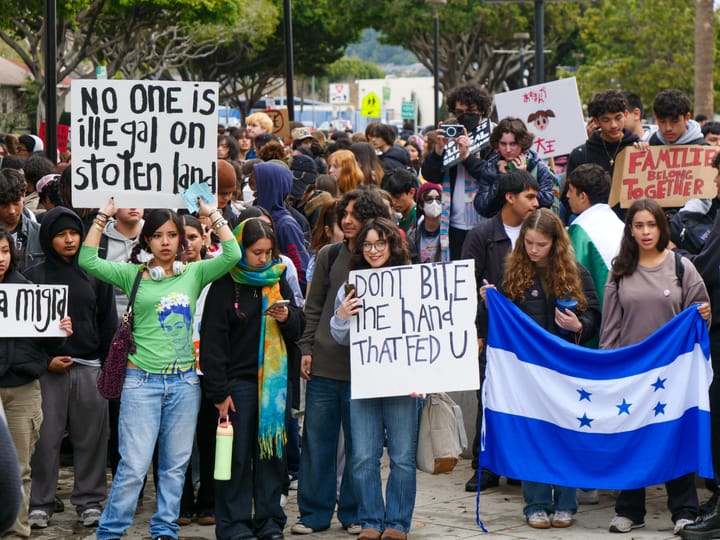
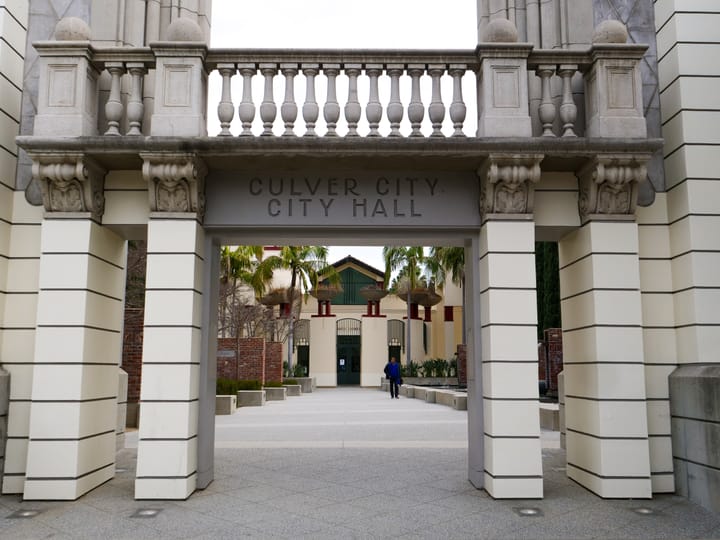
Comments ()